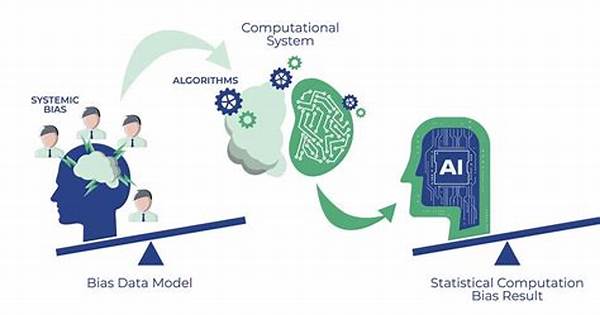Impact of AI Model Bias
In the dazzling world of artificial intelligence, where rapid advancements promise groundbreaking solutions, the issue of AI model bias hovers as a shadow threatening to undermine these technological milestones. But what’s the big fuss about? The impact of AI model bias surfaces when AI systems, which are fundamentally trained on human data, inadvertently amplify societal prejudices. At first glance, AI models might seem impartial, a technical marvel created devoid of human error. However, the reality tells a different tale, one which demands urgent attention.
As AI continues to weave its way into sectors like healthcare, criminal justice, and employment, the repercussions of AI model bias can’t be overlooked. Presented through persuasive narratives of both humor and gravity, our story today delves beyond the headlines, offering a unique perspective on this technological hiccup. How might this bias manifest? Imagine a recruitment AI system that inadvertently rejects candidates of a certain gender or ethnicity, solely because it’s been exposed to biased data in the past. The ramifications? Individuals miss out on equal opportunities, businesses inadvertently uphold discriminatory practices, and the technology that promised to usher in an era of equality does just the opposite.
What’s truly remarkable is how this bias can be as stealthy as a ninja in a dark alley. While AI promises speed, efficiency, and objectivity, an unaddressed bias can lead us down a garden path of exclusion and inequality. The impact of AI model bias stretches beyond numbers and into human lives – a cost far greater than any tech hiccup. From the sidelines, stakeholders, developers, and policymakers, now more than ever, must pivot their attention to ensure fairness, accuracy, and inclusivity in algorithms. Our invitation? Join us as we unravel this conundrum, and perhaps, just perhaps, we’ll spark a change that leads to unbiased technological innovation.
Understanding the Roots and Implications of AI Model Bias
The first step is acknowledgment. Acknowledging that data, in its rawest forms, carries the imprints of its creators. In an insightful interview with a seasoned AI researcher, it becomes clear that biases in AI models primarily arise from historical data embedded with societal prejudices. This revelation pushes the tech industry to introspection, making them question and re-evaluate – just how much does their ‘impartial’ data reflect societal biases?
Turning our gaze to potential solutions, many technologists advocate for broadening the data spectrum. By diversifying the data used to train AI, we can inject a dose of reality into these models, accounting for variance across demographics. But this pursuit is not without challenges. Opponents argue about the feasibility and potential privacy concerns of acquiring such inclusive datasets. Yet, the determination to confront the impact of AI model bias remains a shared desire.
One illustration, relayed between industry leaders, highlights a humorous yet poignant analogy: “AI is akin to a sous-chef prepped with recipes not of their choosing – if all they’ve learned are salty soups, don’t be surprised when dessert starts tasting savory.” This analogy underscores the need for deeper scrutiny and balanced data feeding.
Decisive actions are required to quench the thirst for AI solutions that neither discriminate nor marginalize. The bridge between human intent and machine output lies in crafting multidisciplinary teams who bring diverse lenses to the table. In this intertwined dance of human influence and machine learning, we find our role as educators, guardians ensuring AI models grow devoid of bias.
The Stakes of Ignoring AI Model Bias
In an era where technology reigns supreme, the impact of AI model bias serves as a call to arms. Amid a landscape painted with humor, innovation, and cautious optimism, we find our place, championing an AI ecosystem driven by fairness and unwavering accountability. Whether you are a tech enthusiast, skeptic, or somewhere in between, understanding these biases is crucial. Let’s stay informed, demand transparency, and build a future where AI, unshackled from ingrained prejudices, becomes a tool for all.

